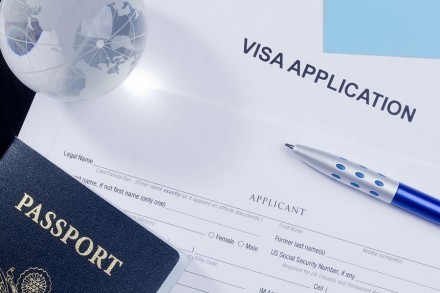EB-4 Special Immigrant & Religious Workers

The EB-4 visa category is designed for a variety of special immigrants, including religious workers, special immigrant juveniles, certain government and international organization employees, and others. This category has seen recent updates as per the Department of State’s April 2023 Visa Bulletin and accompanying Federal Register Notice, which detail changes to the Final Action Dates and Dates for Filing.
Eligibility Criteria
The EB-4 visa encompasses several subcategories of special immigrants:
- Religious Workers: Ministers and non-ministers in religious vocations and occupations intending to perform religious work in full-time, compensated positions in the U.S.
- Special Immigrant Juveniles: Children declared dependent in a juvenile court within the U.S., who have been found to need protection from abuse, neglect, or abandonment.
- Certain Broadcasters: Individuals employed by the International Broadcasting Bureau of the Broadcasting Board of Governors or a grantee of such organization.
- Certain Retired Officers or Employees: Retired officers or employees of G-4 international organizations or NATO-6 civilian employees, and their family members.
- Certain U.S. Government Employees Abroad: Employees who have served the U.S. government in a foreign country, along with their family members.
- Members of the U.S. Armed Forces.
- Panama Canal Company or Canal Zone Government Employees.
- Certain Physicians: Those who have been licensed and practicing medicine in a U.S. state since January 9, 1978.
- S Nonimmigrants: Noncitizens who have supplied valuable information concerning criminal organizations or enterprises, or terrorist organizations.
Application Process
- Filing Form I-360: Most EB-4 categories require the filing of Form I-360, Petition for Amerasian, Widow(er), or Special Immigrant by the employer or, in some cases, the individual themselves. Some categories allow for self-petitioning, while others do not require a Form I-360.
- Adjustment of Status or Consular Processing: Once the I-360 petition is approved, if the applicant is already in the United States, they may apply to adjust their status to a lawful permanent resident using Form I-485. Applicants outside the U.S. will proceed through consular processing.
Documentation and Requirements
- For Religious Workers: Proof of tax-exempt status, compensation details, and qualifications for performing religious duties are required. A significant note is the sunset date extension for non-minister religious workers to September 30, 2024, allowing them to adjust their status or immigrate by this date.
- For Special Immigrant Juveniles: Evidence of court dependency and the necessity for juvenile protection.
- For Broadcasters and Other Specific Employees: Documentation of employment and the nature of the job performed.
- For Physicians: Proof of medical licensure and practice.
- For S Nonimmigrants: Evidence of the information provided and its relevance to criminal or terrorist activities.
Special Considerations
- Expedite Requests: USCIS considers expedite requests for religious workers on a case-by-case basis. Requests must demonstrate an urgent need related to furthering the cultural or social interests of the United States.
- Religious Freedom Restoration Act (RFRA): Petitioners who believe a requirement substantially burdens their exercise of religion may seek an exemption supported by relevant documentation.
For professional assistance in navigating the EB-4 visa process, including preparing and filing petitions and ensuring compliance with all requirements, consider contacting Croce & Associates. Our experienced immigration attorneys can provide personalized guidance and support tailored to your specific circumstances. Contact us at info@crocelegal.com or call 786-200-3088 for a consultation.







